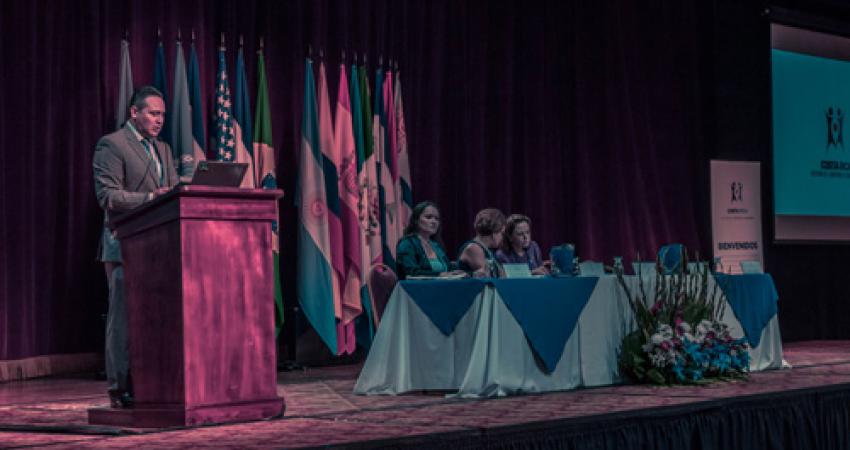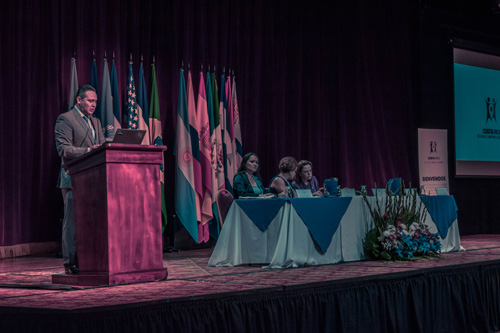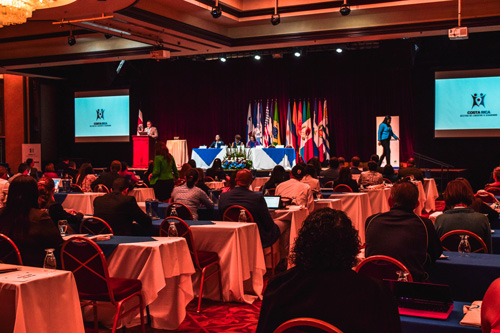14 countries share their strategies to fight against trafficking in persons in the tourism industry

 Behind the services and attractions that make some touristic destinations famous in the region, situations of trafficking in persons can be concealed. In between landscapes, exotic foods and adventure packages, hide risks and stories of victims of trafficking in persons, which in many times are hard to identify, for which 14 countries met in Costa Rica to share experiences, exchange ideas and generate dialogue that would help eradicating this problem, especially the issues regarding the sexual exploitation of children in the touristic sector. Only in Costa Rica, 71 persons coming from North America and Europe were refused entry in 2016 because of their history in crimes of this type.
Behind the services and attractions that make some touristic destinations famous in the region, situations of trafficking in persons can be concealed. In between landscapes, exotic foods and adventure packages, hide risks and stories of victims of trafficking in persons, which in many times are hard to identify, for which 14 countries met in Costa Rica to share experiences, exchange ideas and generate dialogue that would help eradicating this problem, especially the issues regarding the sexual exploitation of children in the touristic sector. Only in Costa Rica, 71 persons coming from North America and Europe were refused entry in 2016 because of their history in crimes of this type.
Led by the Tourism Institute of Costa Rica – ICT – and the General Directorate of Migration – DGME -, the first ‘’International Congress against the Crimes of Trafficking in Persons and Sexual Exploitation of boys, girls and adolescents, associated to travelling and tourism’’ dedicated two days to discuss all perspectives on the subject.
 ‘’Because the nature of the crime transcends borders, it is clear that we can only fight the problem through inter-institutional and international coordination, and by applying the human rights framework. Because of that, I emphasise the importance of the International Congress, that without a doubt will help – in coordination with the countries – to increasingly take more convincing steps in the fight to guarantee a dignified life for every person’’, stated the Vice President of Costa Rica, Ana Helena Chacón Echeverría.
‘’Because the nature of the crime transcends borders, it is clear that we can only fight the problem through inter-institutional and international coordination, and by applying the human rights framework. Because of that, I emphasise the importance of the International Congress, that without a doubt will help – in coordination with the countries – to increasingly take more convincing steps in the fight to guarantee a dignified life for every person’’, stated the Vice President of Costa Rica, Ana Helena Chacón Echeverría.
Representatives for international organisms, government officials, private sector linked to the tourism industry, and investigators shared diverse presentations with the public that also included activists, and public officers related to the tourism industry such as those that offer support to migrant persons and victims of exploitation.
‘’The subject of deep web, that is in nature, and because of how it is configured, hard to track, makes it difficult to find the criminals we are looking for. However, technology is also helping us find missing persons and victims of trafficking’’, said Rosilyne Borland, IOM Regional Specialist in Migrant Assistance.
Courtney Walsh: the Fight Against Modern Slavery
Sponsored by the International Organization for Migration – IOM -, Courtney Walsh, expert of the NGO Polaris, participated in the congress and presented on the vulnerabilities that affect minors and how to prevent them.
Walsh highlighted that governments play a crucial role in the fight against these situations as the exchange of information is essential for the cause.
According to the expert, the number of victims around the globe is estimated at more than 20 million.
At the beginning of September, IOM and Polaris announced the launch of the Collaborative Data Center to fight trafficking in persons (CTDC). The CTDC is intended to become an online portal that holds a global repository of data regarding trafficking in persons which will protect the identity of victims and will use the new international standards of data protection.
To learn about the challenges and opportunities derived from the topic, you can consult the following interview:
